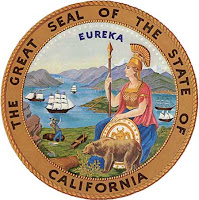
Salon.com has a very telling piece by Sidney Blumenthal on the Cheney vice presidency. What was most interesting to me however was the photo (shown here) placed in the article. I’ve become increasingly interested in how photography and television imagery frame particular narratives. Oftentimes, an image imbedded in an article may have more influence than the actual text. This photo of Cheney here needs no explanation. If you are interested in the use of visual narratives, especially political analysis I recommend a wonderful blog, BAGnews, which is run by Dr. Michael Shaw.
Here is a sample of a very interesting comparative analysis of Hillary and Obama, which includes some feminist theory. Let me know what you think. Is there anyone here at SDU considering some sort of related research? I would be very interested in hearing from you.
I will be taking a course next semester, “Hollywood War Zone,” which will explore among other things, the use of visual narrative as Pentagon propaganda.
Friday, June 29, 2007
The Imperial Vice Presidency and Visual Narrative
Posted by Stuart Noble at 08:11
Labels: Media and Media Theory
Thursday, June 14, 2007
Californiatopia?

Governor Schwarzenegger is quite clear that California is not simply another state. “We are the modern equivalent of the ancient city-states of Athens and Sparta,” he recently declared. “We have the economic strength, we have the population and the technological force of a nation-state.” In his inaugural address, Mr. Schwarzenegger proclaimed, “We are a good and global commonwealth.” Regional devolution would most likely be initiated by a very large state with a distinct sense of itself and aspirations greater than Washington can handle. The obvious candidate is California, a state that has the eighth-largest economy in the world.
If such a state decided to get serious about determining its own fate, other states would have little choice but to act, too. One response might be for an area like New England, which already has many regional interstate arrangements, to follow California’s initiative — as it already has on some environmental measures. And if one or two large regions began to take action, other state groupings in the Northwest, Southwest and elsewhere would be likely to follow.
Tuesday, June 12, 2007
Richard Rorty, Philosopher, Dies at 75

"Richard Rorty, whose inventive work on philosophy, politics, literary theory and more made him one of the world’s most influential contemporary thinkers, died Friday in Palo Alto, Calif. He was 75."
Rorty’s writings have been very influential on my own “philosophy” about academia, democracy, and ultimately how I view America and my place in the world. He was unique for several reasons. Undoubtedly one the most influential American thinkers, he blurred the lines between philosophy, politics, and literary theory. In particular, Rorty has brought the differences between literature (as the nearest textual practice to philosophy) and philosophy into a common discussion. He emphasized that the kind of arguments that literature makes are in fact more open and dynamic (and thus more suited to a liberal/pragmatic world-view) than the kind of arguments that philosophy makes.
I recommend this article, "The Decline of Redemptive Truth and the Rise of a Literary Culture," for a fairly recent summary of Rortian philosophy.
From within a literary culture, religion and philosophy appear as literary genres. As such, they are optional. Just as an intellectual may opt to read many poems but few novels, or many novels but few poems, so he or she may read much philosophy, or much religious writing, but relatively few poems or novels. The difference between the literary intellectuals’ readings of all these books and other readings of them is that the inhabitant of a literary culture treats books as human attempts to meet human needs, rather than as acknowledgements of the power of a being that is what it is apart from any such needs. God and Truth, are, respectively the religious and the philosophical names for that sort of being.He is most misunderstood and attacked from critics on the "right" and "left" for his assertion that there is no truth out there and that we (philosphers in particular) should simply stop searching for truth and get about the practical business of creating a better society. Better, of course, being defined not by epistemology but by social consensus. When I've argued that Wikipedia represents "the truth," its largely based on Rorty's concept of "unforced agreements."
Stanford University, were Rorty taught comparative literature has an obiturary here. Jürgen Habermas writes a eulogy which you can read here. Todd Gitlin has also written something here.
Posted by Stuart Noble at 19:29
Labels: Halls of Academia



